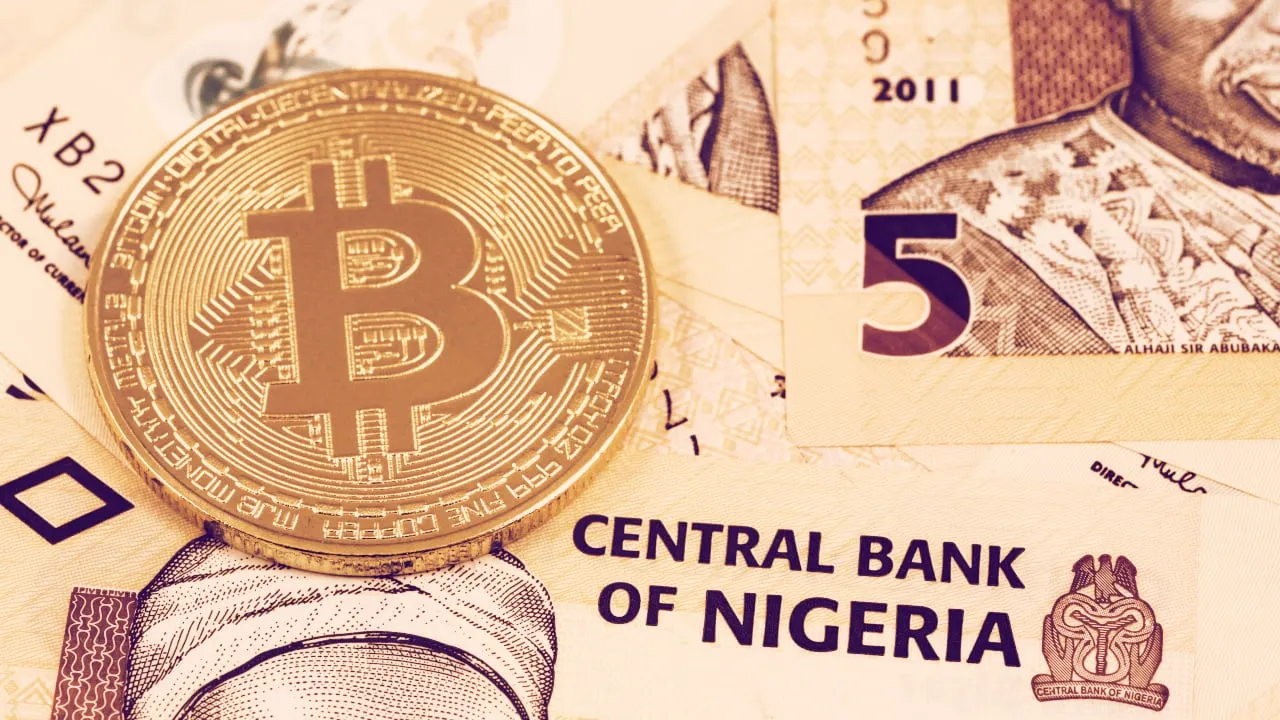In brief
- A Nigerian Central Bank official reiterated that there’s no ban on individuals trading in crypto.
- Banks remain barred from working with crypto companies.
A senior official from the Central Bank of Nigeria (CBN) rejected claims that the bank has ever banned crypto, reported local media outlet Today NG.
The CBN official, Adamu Lamtek, reportedly said that the bank protected the banking sector from cryptocurrencies—it didn't ban crypto trading itself.
The clarification comes more than a month after Nigeria’s central bank told all banks to immediately cancel their services for customers who buy, sell, or trade cryptocurrencies. It isn't clear what prompted the bank’s decision.
“The CBN did not place restrictions from use of [sic] cryptocurrencies and we are not discouraging people from trading in it,” Lamtek was quoted as saying in Today NG. “What we have just done was to prohibit transactions on cryptocurrencies in the banking sector."
Lamtek spoke on behalf of the governor of the bank, Godwin Emefiele, and reportedly disclosed this at a recent meeting for journalists held by the bank in the Nigerian city Abuja.
But these words shouldn’t be taken as the Nigerian government endorsing crypto; the Central Bank has no jurisdiction over who can trade cryptocurrencies to begin with, explained Danny Oyekan, CEO of investment firm Dan Holdings and social payments app Coins App.
Crypto is under the jurisdiction of Nigeria’s Securities and Exchange Commission. Back in September, Nigeria’s SEC announced plans to regulate the crypto sector by deeming cryptocurrencies securities until proven otherwise.
Despite the regulatory uncertainty, Nigeria is often called Africa’s Bitcoin Nation as the country’s crypto trading volume outpaces most other countries in the world.
The Post-Ban Nigerian Crypto Industry
It’s been just over a month since the Nigerian Central Bank’s ban on financial institutions dealing with crypto companies came into force.
But the Nigerian crypto industry hasn’t died out. “The industry has shown resilience and quickly adapted by developing peer-to-peer exchanges,” Oyekan told Decrypt. “That’s not an easy feat to accomplish in 1-2 months.”
In response to the ban, OTC deals are still underway and the informal peer-to-peer market is also growing, explained Oyekan.
“So basically, the ban only forced the fiat channels underground.”

